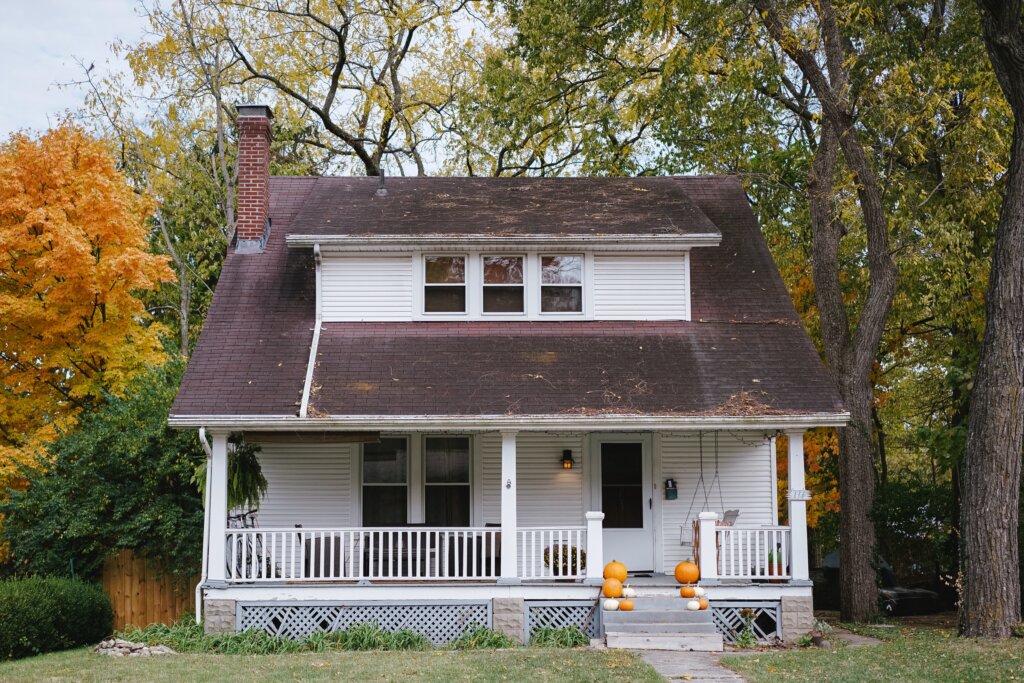
If you’re selling a home and have recently had a loved one pass away or an unexpected event occur that resulted in someone’s passing, you may have been asking, “Do you have to disclose a death in a house?” When purchasing a home, most people don’t want to think about someone dying in a home, but some may become curious as to what events occurred in the house.
While many sellers know they must disclose if a home has any physical defects, such as a poor foundation or mold, what’s the rule about disclosing a death in your house when selling a home? Below, we’ll discuss everything you should know about disclosing a death in a house.
Disclosure Defined
Disclosure is defined as the legal principle that requires an individual who is selling a home to disclose defects and property issues to buyers. Many state laws require sellers to reveal any defects of a home to potential buyers, such as a damaged roof, poor foundations, or mold infestations. These defects are known as “material facts” and should be disclosed before making a deal to sell the home.
However, in some states, it’s required that sellers also disclose if a death has occurred in the home. Sellers frequently have difficulty making their property attractive with listings, in addition to meeting the disclosure requirements. When selling a home, we recommend consulting your state regulations to determine what specific obligations and exceptions are required.
What is Needed for Disclosure?
Sellers need to know that in some states, any vital information obtained about a violent death, such as murder or suicide in a home, requires disclosure. However, there are some exceptions, such as the time the murder occurred. If enough time has passed, you may not need to disclose the death in your house, so we recommend checking with your state laws for a more exact answer.
Additionally, if you believe your home is haunted, you might be required to provide disclosure to potential buyers. We must note that when this topic approaches, various regulations depend on the state, but many areas require the seller to disclose if any paranormal activity has occurred that may affect the property and new homeowners.
Do You Have to Disclose a Death in a House? The Time Frame

In many circumstances, if an individual has passed away in a home, there are no obligations in most states that require disclosure. However, in specific states such as California, Alaska, or South Dakota, there are some exceptions you’ll need to read up on.
For example, in California, if a death has occurred in a home, whether it’s violent or peaceful, the seller must provide disclosure if the death occurred over the last three years. Additionally, the seller must provide disclosure if the potential buyer asks. If you’re a seller in California, South Dakota, or Alaska, we recommend checking with your housing authority before selling the home.
It’s essential to remember that even if you’re not legally obligated to disclose a death in a home if you conceal issues with your property, you may be held liable to lawsuits for deceiving buyers. That’s one risk we know many sellers don’t want to take.
Disclosure of Violent Deaths
Regarding disclosure of violent deaths, this is another area that is sensitive and has its own set of regulations. If a murder or suicide has occurred in the home and was made public, this is considered an event that may stigmatize the home. Similar to physical issues such as water damage, this topic may affect your home’s value.
If a violent death has occurred in the home, the property becomes marked, so potential buyers may not want to be associated with it. Many potential buyers are uneasy about living in a home where they know a murder has occurred. Others may not mind at all.
Sellers in many states are required by law to disclose violent deaths on a property, such as murder. While each state has its own set of requirements, Texas, for example, does not require the disclosure of deaths such as accidents, suicide, or natural causes.
Additionally, the seller must disclose a death that affects the home’s condition. For example, if the previous owner had a relative drown in their pool due to the lack of a safety perimeter, the seller must disclose the death, even if a pool fence was installed after the accident.
Do You Have to Disclose a Death in a House? The Exceptions
We must mention that in some circumstances, there are exceptions to a seller needing to disclose a death on the property. Some states don’t require a seller to disclose a death, mainly if they passed away under natural circumstances. However, many states do require disclosure if the seller is aware the property is being haunted by the person who passed away in the home.
For example, in Georgia, there is no requirement for a seller to disclose a suicide or homicide. If you live in Georgia, we recommend playing it safe and making the potential buyers aware of a death in the property to avoid any future lawsuits. If you’re a seller who is concerned about liability, again, it’s best to disclose the death in your house.
In many cases, once the buyer has settled into the home, they’ll most likely hear about the death from their new neighbors. This may cause the buyer to back out of their contract and make them curious about what else you’re not disclosing about the home.
Do Potential Buyers Want to Know About Deaths in a Home?
While many potential buyers may be curious about a home in which someone has passed away, it’s essential to know the laws in your state and be aware if you need to disclose a death on the property.
If the potential buyer is concerned about the death, they may ask before making an offer on the property. However, if you’re selling a home and a death has occurred, you should disclose the death upfront.
We recommend disclosing the death upfront, so you don’t need to go through the entire escrow proceedings only to find out your buyer is unsure about purchasing the home. If you fail to disclose the death, your potential buyer may take legal action, so we recommend doing the right thing and pulling off the bandaid from the start.
States That Require the Disclosure of Death

- Alaska – murder or suicide must be disclosed within the year
- South Dakota – murder or suicide must be disclosed within the year
- California – must disclose any deaths occurring in the last three years
- Delaware – no disclosure needed unless requested in writing
- Georgia – no disclosure unless asked
- Kentucky – no disclosure unless asked
- Wisconsin – no disclosure unless asked
- Kansas – no disclosure required, but recommended
- Ohio – no disclosure required, but recommended
- Vermont – disclosure required if it affects the home’s value
- New Jersey – disclosure if death was from property conditions
- Maine – disclosure with permission from the seller
- North Dakota – disclosure with the authorization from the seller
The following states do not require disclosure, but when an agent asks, they must disclose.
- Alabama
- Arizona
- Arkansas
- Colorado
- Connecticut
- Florida
- Hawaii
- Idaho
- Illinois
- Indiana
- Iowa
- Louisiana
- Maryland
- Massachusetts
- Michigan
- Minnesota
- Missouri
- Montana
- Nebraska
- Nevada
- New Hampshire
- New Mexico
- New York
- North Carolina
- Oklahoma
- Oregon
- Pennsylvania
- Rhode Island
- South Carolina
- Tennessee
- Texas
- Utah
- Virginia
- Washington
- Washington, D.C.
- West Virginia
Do You Have to Disclose a Death in a House?: FAQ
1. Do you have to tell if someone died in your house?
If you’re a potential buyer, you may be curious if someone has died on the property you’re interested in. Some times, such as California, require a seller to disclose if a death has occurred on the property within the last three years of the date they’re selling the property.
2. Does it matter if someone dies in a house?
In some cases, if someone has peacefully passed away in a home, there’s no legal obligation in many states that require a seller to disclose it.
3. How do I find out if there was a death in my house?
If you want to discover a death in your property, you can check your local archives and obituary sites.
4. Does a death in my house decrease its value?
Having damaged property can make it challenging to sell a home, but what hurts property value even more is a homicide. According to real estate agents, a murder in a home can drop property value anywhere from ten to twenty-five percent.
5. What does it mean when a house is stigmatized?
If a house is stigmatized, it means that it may be displeasing to potential buyers for reasons other than being physically damaged. Some states do not require to disclose a stigma, such as murder, crime, or suicide.
6. How do you find out if the house is stigmatized?
To find out if a house is stigmatized, you can ask your real estate agent outright. Agents will give an honest answer to avoid legal action.

